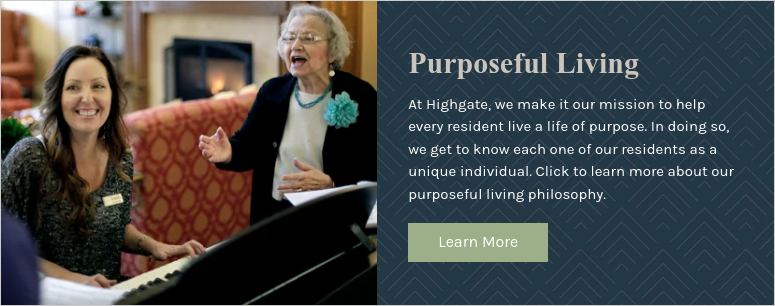
As our society rapidly ages, a critical conversation is unfolding. How can we support the growing population of older adults in leading meaningful lives? Research points to a profound connection between purpose and longevity. A life with purpose not only contributes to mental and emotional well-being, but it also plays a pivotal role in maintaining physical health as we age.
Redefining Purpose in Later Life
For many, the concept of purpose has been tied to career, raising a family, or contributing to society in a tangible way. In the later years of life, these traditional markers of purpose often shift, leaving many older adults feeling disconnected and adrift. The challenge lies in redefining purpose as people transition into retirement or face life changes such as the loss of loved ones or declining physical health.
Purpose is not static, and neither is aging. In fact, one of the greatest opportunities in later life is the chance to explore new passions, engage in fresh experiences, and build new connections. But for many older adults, this process requires the right environment — one that fosters holistic engagement and supports individual growth.
Why Purpose Matters for Health and Well-Being
Research consistently shows that having a sense of purpose is linked to better health outcomes for older adults. A landmark study published in the journal Psychological Science found that older adults who feel a sense of purpose are more likely to live longer, healthier lives. This is echoed by findings that purpose-driven individuals exhibit lower rates of cognitive decline, depression, and chronic illness.
In a practical sense, purpose acts as a motivator for engagement. It drives individuals to remain physically active, maintain social relationships, and stay mentally sharp — all of which contribute to improved quality of life.
In our work at Highgate Senior Living, we see the impact of purposeful living firsthand. Residents who remain engaged with their passions, hobbies, and communities not only report higher levels of happiness, but they also tend to stay healthier for longer. Purpose fuels vitality, and as people age, this becomes more essential than ever.
The Role of Senior Living Communities in Supporting Purpose
Senior living communities have a unique role to play in helping older adults rediscover their sense of purpose. Traditional models of elder care have often focused solely on physical health and safety. No matter your age, everyone needs an environment where they can thrive — mentally, physically, and emotionally.
At Highgate Senior Living, our approach to purposeful living emphasizes a holistic view of well-being, where mental, social, spiritual, and physical health are equally prioritized. This approach recognizes that residents are more than the sum of their medical needs. They are individuals with rich histories, diverse interests, and a desire for meaningful engagement.
Our residents have the opportunity to pursue passions they’ve cultivated throughout their lives while exploring new avenues for growth. Whether it’s reigniting a love of art, learning a new language, or simply building friendships within the community, our focus is on creating an environment where purpose flourishes.
Three Pillars of Purposeful Living for Older Adults
1. Personalized Care and Engagement
Purpose looks different for every individual. This is why senior living communities must prioritize individualized approaches to care. By taking the time to understand a resident’s unique story, caregivers can create opportunities for meaningful engagement that align with their interests and values. For some, this might involve creative pursuits like painting or music; for others, it may be social activities or fitness programs that challenge the mind and body.
2. Creating Social Connections
A major factor in the loss of purpose is isolation. As people age, social networks can shrink, leading to loneliness and disengagement. Senior living communities play a critical role in rebuilding these social connections. Organized activities, communal dining, and shared spaces offer opportunities for residents to form new friendships and support one another. The bonds formed within these communities often reignite a sense of belonging and purpose
3. Lifelong Learning and Exploration
A mindset of lifelong learning is key to maintaining purpose throughout life. The pursuit of new knowledge and skills keeps the mind active and the spirit engaged. Whether through structured classes or informal discussions, creating opportunities for residents to explore new topics helps keep curiosity alive and builds resilience against cognitive decline.
The Future of Aging: A Purposeful Paradigm
As we look to the future, the concept of purposeful aging must become central to how we design senior care. Purpose should be recognized as a basic human need — one that continues to evolve throughout the lifespan. Senior living communities, like Highgate, are pioneering this approach, demonstrating that aging can be a time of growth, joy, and fulfillment.
In redefining how we care for older adults, we are also redefining what it means to age. Purposeful living allows individuals to remain active participants in their own lives, giving them the tools and support needed to thrive, regardless of age.
At Highgate, we believe that purpose isn’t something you lose with time — it’s something you rediscover, again and again. And that rediscovery is the key to living well, well into old age.






